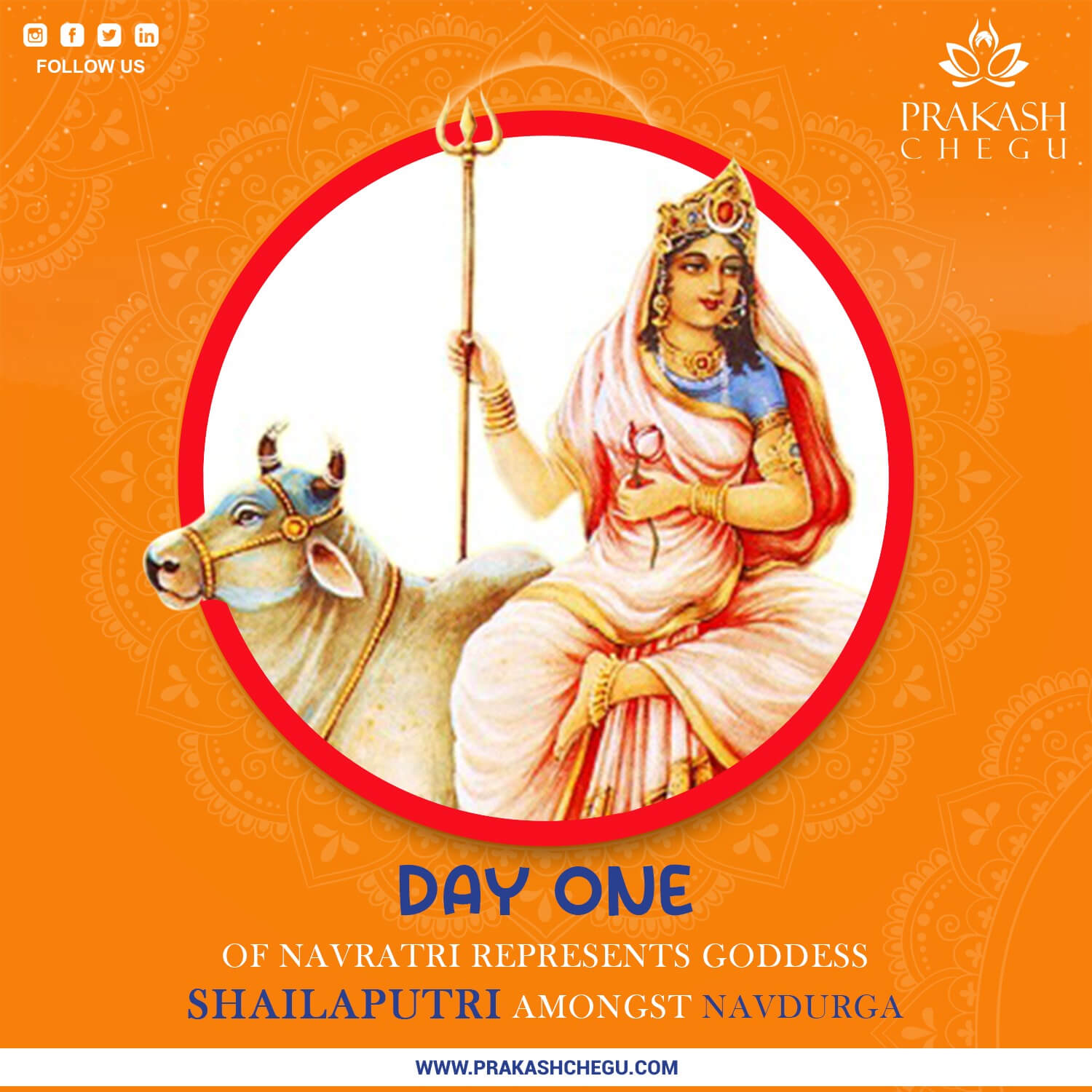Navaratri, the nine-day festival dedicated to the Divine Feminine, begins with the worship of **Shailaputri** on the first day. The name Shailaputri, meaning "daughter of the mountain," is a reference to Goddess Parvati, the daughter of King Himavat, the ruler of the Himalayas. She represents the grounding and stabilizing energy of nature itself—majestic, strong, and immovable like a mountain.
Shailaputri, the embodiment of the root chakra (**Muladhara**), is the foundation of spiritual growth and the nurturing force that drives our journey toward self-realization. Just as the mountains stand firm and tall, unshaken by time or tempest, the energy of Shailaputri teaches us resilience, patience, and unwavering strength. She carries the divine energy of protection and groundedness, reminding us that even as we embark on spiritual quests, we must stay connected to our roots.
In this form, the Goddess is depicted riding a bull, holding a trident and a lotus, symbolizing strength and purity. Her bull, **Nandi**, represents dharma, or righteousness, while her trident speaks to her power to conquer the forces of ignorance and ego. The lotus flower she holds symbolizes spiritual enlightenment and purity of the heart.
#### The Symbolism of Shailaputri
On this first day of Navaratri, we begin our spiritual journey with Shailaputri's energy. She encourages us to be in tune with the earth, grounding ourselves both physically and emotionally. Life’s journey requires a stable foundation, just as a tree requires strong roots to grow tall. Shailaputri helps us establish these roots, guiding us to embrace our inherent strength and stand firm in the face of challenges.

Worshiping Shailaputri reminds us that while life may throw obstacles our way, we are capable of overcoming them by staying grounded in our values and principles. This form of the Goddess embodies the nurturing, motherly energy that heals, protects, and fosters growth.
#### The Importance of the First Day
The first day of Navaratri is a time to cleanse and purify ourselves, as Shailaputri’s energy corresponds to the **Muladhara Chakra**, the root chakra that governs our sense of security and survival. By focusing on this chakra, we strengthen our connection to the earth and build the inner stability needed to progress spiritually. It is a time to reflect on our foundations—both physical and emotional—and set our intentions for the days ahead.
Through the worship of Shailaputri, we invoke her blessings for strength, stability, and determination. We ask her to help us navigate life’s challenges with grace and to provide us with the grounding energy we need to start our spiritual ascent.
#### Rituals and Mantras
On this day, devotees perform various rituals to honor Shailaputri. Traditionally, people wear red, which symbolizes action, energy, and vitality. The **Pratipada Tithi** (first lunar day) is considered a sacred day for initiating the Navaratri fast or spiritual practices.
Chanting the following mantra on this day is said to invoke her divine blessings:
**"Om Devi Shailaputryai Namah"**
(Meaning: I bow to the Goddess Shailaputri.)
This mantra helps the devotee connect with Shailaputri's energy, fostering inner strength and resilience.
Devotees also offer **kacha dhanya** (raw grains) and **pure ghee** as a symbol of nourishing and grounding energy. It is believed that offering ghee to the Goddess on this day brings good health and vitality.
#### Conclusion
As we begin our Navaratri journey with the worship of Shailaputri, we are reminded that true strength comes from within. She teaches us that no matter what obstacles or trials we face, by staying rooted in our values and grounded in our beliefs, we can overcome any challenge. Her presence on the first day of Navaratri sets the tone for the rest of the festival, guiding us to be strong, resilient, and connected to the earth.
By embracing Shailaputri’s energy, we prepare ourselves for the spiritual journey ahead, one that will lead us to deeper wisdom, inner peace, and ultimately, self-realization.


0 Comments